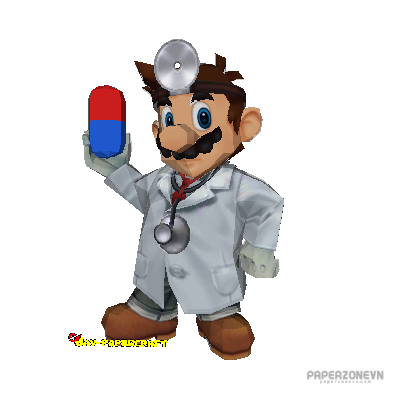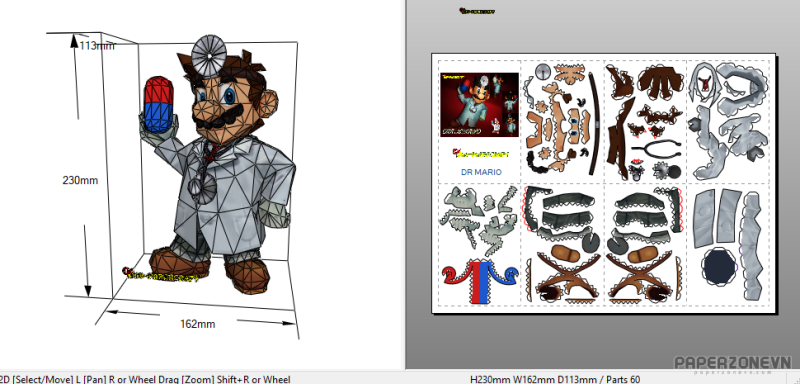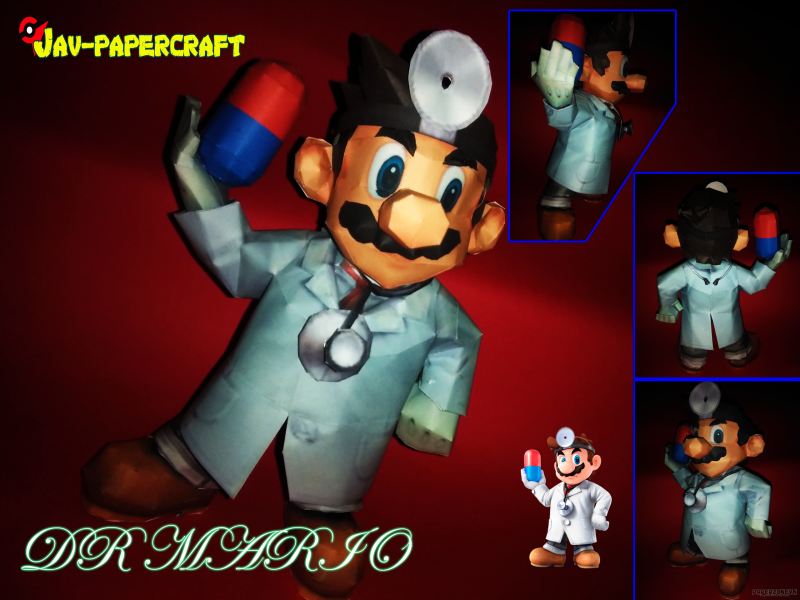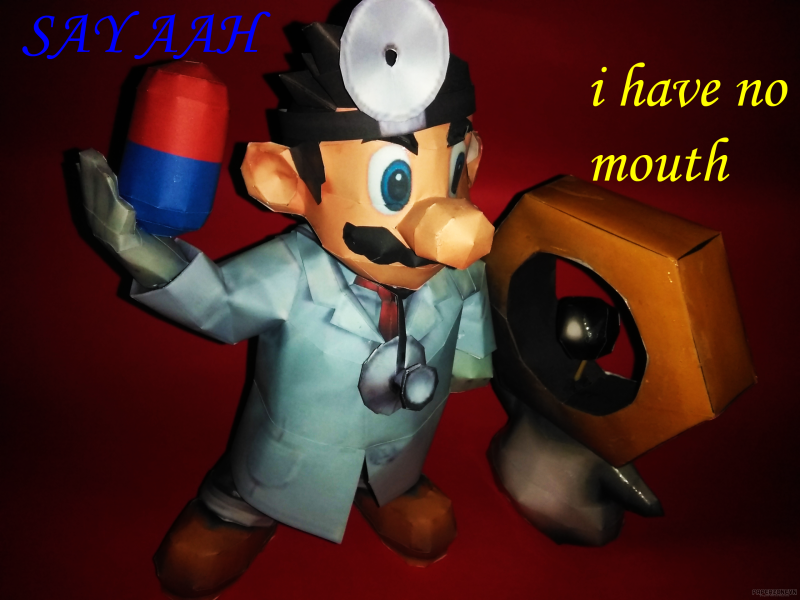- Thumbnail
-

- Resources
- jav-papercraft.blogspot.mx
- Author
- javierini
- Printed File Format
- PDO
- Page(s)
- 8
- Part(s)
- 60
- Instruction Format
- PDO
Sponsored:
Dr. Mario papercraft

Dr. Mario (standardized as D℞.MARIO) is a 1990 action puzzle video game produced by Gunpei Yokoi and designed by Takahiro Harada. Nintendo has developed and released games for Famicom and Game Boy consoles. The game soundtrack was composed by Hirokazu Tanaka.

The player's goal is to destroy the virus that invades the playfield on the screen using colored vitamin capsules that Mario, who plays the role of a doctor, throws into the field. The player manipulates the capsules as they fall, with the goal being to align similar colors which removes the viruses. The player progresses through the game by eliminating all the viruses on the screen in each level.

Dr. Mario was a commercial success, having sold over 10 million game cartridges worldwide across all platforms, and it received positive reception, appearing on several "Best Nintendo Games of All Time" lists. The game has been ported, remade, or has had a sequel on every Nintendo home console since the NES as well as most portable consoles, including a rerelease in 2004 on the Game Boy Advance as part of the Classic NES Series. Modified versions of Dr. Mario exist as minigames in WarioWare, Inc.: Mega Microgames!, Brain Age 2: More Training in Minutes a Day!, and Brain Age: Concentration Training. Wii U spin-off game, Ph.D. Luigi was released in 2013 to celebrate Luigi's year.


Dr. Mario (standardized as D℞.MARIO) is a 1990 action puzzle video game produced by Gunpei Yokoi and designed by Takahiro Harada. Nintendo has developed and released games for Famicom and Game Boy consoles. The game soundtrack was composed by Hirokazu Tanaka.

The player's goal is to destroy the virus that invades the playfield on the screen using colored vitamin capsules that Mario, who plays the role of a doctor, throws into the field. The player manipulates the capsules as they fall, with the goal being to align similar colors which removes the viruses. The player progresses through the game by eliminating all the viruses on the screen in each level.

Dr. Mario was a commercial success, having sold over 10 million game cartridges worldwide across all platforms, and it received positive reception, appearing on several "Best Nintendo Games of All Time" lists. The game has been ported, remade, or has had a sequel on every Nintendo home console since the NES as well as most portable consoles, including a rerelease in 2004 on the Game Boy Advance as part of the Classic NES Series. Modified versions of Dr. Mario exist as minigames in WarioWare, Inc.: Mega Microgames!, Brain Age 2: More Training in Minutes a Day!, and Brain Age: Concentration Training. Wii U spin-off game, Ph.D. Luigi was released in 2013 to celebrate Luigi's year.

Sponsored: Google Advertising
